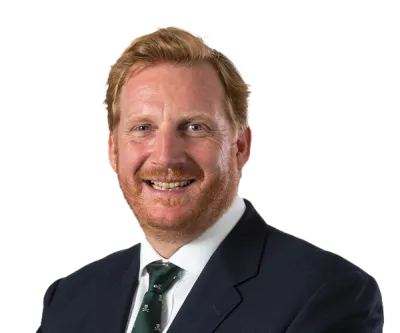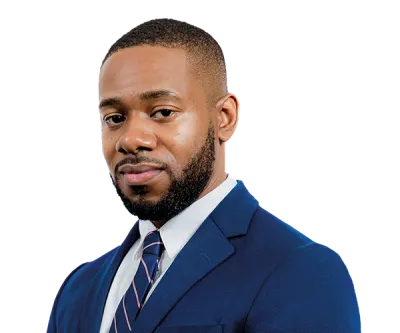Managing the property and affairs of incapacitated persons in the British Virgin Islands
在英属维尔京群岛管理丧失行为能力人士的财产和事务
In the complex world of offshore asset management, ensuring the security of one’s interests becomes even more critical when the owner is incapacitated. This article explores how the BVI Mental Health Act, 2014 (the “MHA”) provides a legal framework for protecting, managing, and administering offshore assets when the owner is unable to do so himself/herself due to mental incapacity.
在复杂的离岸资产管理领域,当权益所有者丧失行为能力时,确保其权益安全变得更加重要。本文将探讨 2014 年《英属维尔京群岛精神健康法》(简称“MHA”)如何在所有者因精神上丧失行为能力而无法自行保护、管理和处理离岸资产时为其提供相关的法律框架。
Court powers under the BVI Mental Health Act
Under Part IX of the MHA, the BVI court has broad powers to make provisions for the management of a person’s property and affairs if they are deemed a “patient.” Section 32(2) of the MHA defines a patient as an individual whom the court, based on medical evidence, determines to be incapable of managing and administering their property and affairs.
The court has previously exercised these powers in cases where, for example, individuals suffered from severe dementia or a disabling stroke that left them bedridden and unable to communicate. There are, however, no strict categories of conditions that qualify under the MHA - rather, the key consideration is whether there is sufficient medical evidence which establishes that the individual cannot manage their own affairs.
Once the court is satisfied that an individual qualifies as a patient under the MHA, it has broad discretion to take necessary actions in their best interest. These actions may include:
- providing for the maintenance or other financial needs of the patient or their family;
- ensuring financial support for dependents or individuals the patient would likely have provided for if they were not incapacitated; or
- administering the patient’s financial affairs, including managing debts and obligations, even if they are not legally enforceable.
Appointment of a receiver
One of the most significant powers granted under the MHA is the ability to appoint a receiver to manage the patient’s affairs. The receiver can be a professional (such as a lawyer or professional receiver) or any other suitable individual whom the court deems appropriate (including family members or legal representatives of the patient).
The court may grant the receiver wide-ranging authority, including the power to:
- control and manage the patient’s property;
- sell, exchange, charge, or otherwise dispose of the patient’s assets;
- acquire property on behalf of the patient;
- settle or gift the patient’s property to individuals or for specific purposes;
- execute a will on behalf of the patient;
- operate any business or professional practice the patient previously ran;
- dissolve partnerships where the patient was a member;
- fulfil contractual obligations entered into by the patient;
- initiate or defend legal proceedings on behalf of the patient;
- pay debts or allocate funds for the patient’s maintenance and that of their dependents; or
- exercise powers vested in the patient, including those held as a guardian or trustee.
The receiver is empowered to act in the patient’s best interests, ensuring their financial affairs remain well-managed despite their incapacity.
Managing shares in a BVI company
If the patient owns shares in a BVI company, the MHA allows for individuals who have been legally appointed in another jurisdiction to manage the affairs of a patient (the ''Foreign Appointee'') to seek the assistance of the BVI court in respect of matters regarding the patient's interest in the BVI company. At the request of the Foreign Appointee the court may:
- direct that the patient’s shares in a BVI company be transferred to the Foreign Appointee; or
- make provisions regarding the receipt of dividends from the BVI company.
Conclusion
The BVI MHA is an important piece of legislation that can help ensure the proper administration of offshore assets when individuals become incapacitated. Through court-appointed receivers and discretionary powers, the MHA provides robust safeguards to manage and protect the financial interests of those unable to do so themselves.
At Carey Olsen, we have successfully obtained relief for patients under the MHA and can provide BVI legal advice on the management of offshore assets for incapacitated individuals. If you require assistance, we would be happy to guide you through the legal process.
MHA规定的法院权力
根据 MHA 第九部分,英属维尔京群岛(简称“BVI”)法院拥有广泛权力,可在某人被视为“患者”时对其财产和事务管理作出规定。MHA 第 32(2) 条将“患者”定义为法院根据医学证据认定其无能力处理和管理其财产和事务的个人。
法院此前曾在一些案件中行使过该等权力,例如,个人患有严重的痴呆症或致残性中风,导致其卧床不起且无法与人沟通。然而,MHA 并未严格划分符合其规定的疾病类别 — 相反,关键的考虑因素是,是否有足够的医学证据证明个人无法管理自己的事务。
一旦法院确信个人属于 MHA 项下的“患者”,则其可行使广泛的自由裁量权,以符合该人最佳利益的方式采取必要的行动。此类行动可能包括:
- 为患者或其家属提供生活费或其他经济需求支持;
- 为患者在未丧失行为能力时可能扶养的受扶养人或其他个人提供经济支持;或
- 管理患者的财务事务,包括管理债务和义务,即使该等债务和义务在法律上无法强制执行。
任命接管人
MHA 赋予的最重要权力之一是任命接管人来管理患者事务的能力。接管人可以是专业人士(例如律师或专业接管人),也可以是法院认为合适的任何其他适当个人(包括患者的家庭成员或法定代理人)。
法院可向接管人授予广泛的权力,包括:
- 控制和管理患者的财产;
- 出售、交换、押记或以其他方式处置患者的资产;
- 代表患者获取财产;
- 将患者的财产分配给或赠与个人或用于特定目的;
- 代表患者执行遗嘱;
- 经营患者此前经营的任何企业或专业事务所;
- 解散患者作为其成员的合伙;
- 履行患者所签订合同项下的义务;
- 代表患者启动诉讼程序或进行抗辩;
- 偿还债务或为患者及其受扶养人的生活费划拨资金;或
- 行使赋予患者的权力,包括作为监护人或受托人的权力。
接管人有权以符合患者最佳利益的方式行事,以确保在患者丧失行为能力的情况下,其财务事务依然能够得到妥善管理。
管理 BVI 公司的股份
如果患者持有 BVI 公司的股份,则根据 MHA 之规定,已在其他司法管辖区接受合法任命以管理患者事务的个人(简称“外国受任人”),可就与患者在 BVI 公司享有的权益相关的事务向 BVI 法院寻求帮助。应外国受任人的要求,法院可以:
- 下达指示,将患者在 BVI 公司的股份转让给外国受任人;或
- 针对 BVI 公司股息的接收作出规定。
结语
BVI MHA 是一项重要立法,在个人丧失行为能力时,该法可帮助确保其离岸资产得到妥善管理。通过法院任命的接管人和自由裁量权的行使,MHA 为无法自行管理和保护其经济利益的个人提供了有力保障。
在凯瑞奥信 (Carey Olsen),我们已成功为 MHA 项下的“患者”争取到救济,并可为丧失行为能力的个人提供离岸资产管理方面的 BVI 法律建议。如果您需要帮助,我们很乐意为相关法律流程提供指导。





